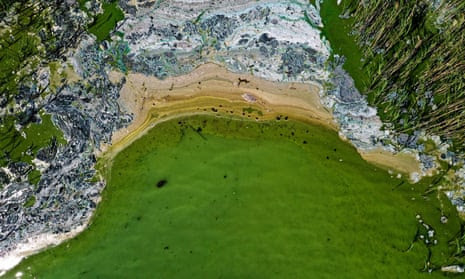
As the increase in the Earth’s temperature inexorably approaches the +1.5˚C threshold set by the Paris Agreement on December 12, 2015, and as the reduction of greenhouse gas emissions takes center stage in the fight against global warming, researchers have decided to study more precisely the phenomenon of climate feedbacks, those phenomena that can worsen the climate crisis and push it past points of no return.
In an article published in February 2023 on the website One Earth, an international team of researchers details the role of these climate feedbacks and the way they amplify a climate phenomenon. Among the forty-one feedbacks identified, twenty-seven aggravate global warming, seven improve it and seven have an outcome that is still uncertain.
One of the study’s co-authors, Jillian Gregg, a scientist and founder of the TERA Global Change Foundation, explains that some of these climate feedback loops are associated with tipping points, which will make it difficult to reverse their effects. Once these tipping points are reached, the phenomena they correspond to are self-perpetuating and cannot be reversed. Some of the twenty-seven climate feedbacks that worsen the climate are better known than others.

Pixabay
This is the case, for example, of the thawing of permafrost. This thawing leads to more carbon emissions and the release of methane, which in turn increases temperatures and encourages the thawing of the permafrost, in a self-perpetuating cycle. A second feedback concerns forest dieback, which causes a loss of carbon in the soil, thus increasing the risk of fires. Other feedbacks will, for example, concern the increase in precipitation in Antarctica or the disruption of the albedo, the amount of energy reflected outwards by the atmosphere and the earth’s surface, particularly by glaciers.
Conversely, some phenomena will tend to mitigate the temperature rise. This is the case for the fertilizing effect of CO2, whose increased content in the atmosphere increases photosynthesis in plants. One of the study’s co-authors, Christopher Wolff, a researcher at the University of Oregon, says many of the feedback loops the team examined significantly increase warming because of their link to greenhouse gas emissions. He believes this is the most comprehensive list of climate feedback loops available. He says that more research and modelling and accelerated emission reductions are urgently needed.

Furthermore, he also believes that not all feedback loops are fully accounted for in climate models and that climate models may underestimate the acceleration of global temperature change because they do not account for all amplifying feedback loops. Christopher Wolff believes that the accuracy of climate models is crucial because they help redirect mitigation efforts by informing policymakers of the expected effects of human-induced greenhouse gas emissions.
The study states that a very rapid reduction in emissions will be needed to limit future warming, also urging better consideration of all factors that influence global warming in addition to climate feedback, such as biological interactions and social climate.




